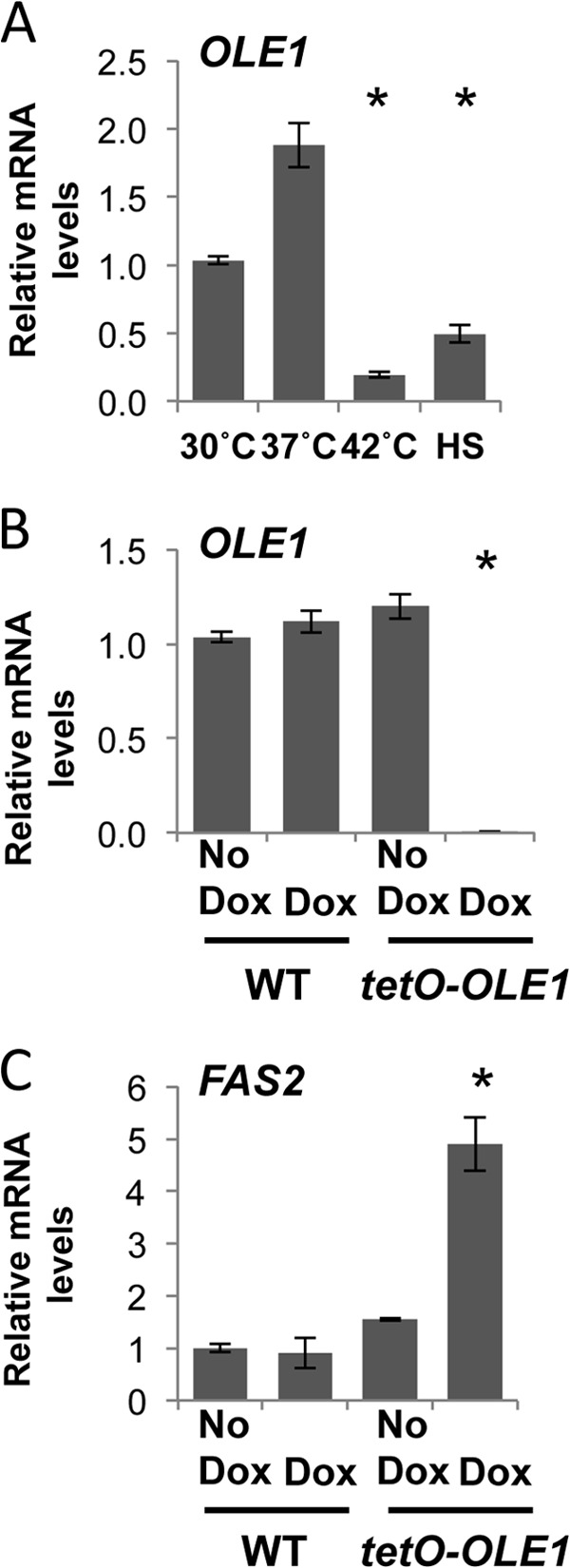FIG 1.

Membrane fluidity is tightly regulated in response to temperature and fatty acid ratios. (A) OLE1 transcript levels decrease upon exposure to high temperatures. C. albicans wild-type (WT) cells were grown to exponential phase at 30°C, 37°C, or 42°C or subjected to a 15-min 30°C to 42°C heat shock (HS), and OLE1 transcript levels were measured and normalized to the ACT1 loading control. *, P < 0.05 compared to 30°C growth (Student t test). (B) OLE1 transcript levels decrease following depletion in tetO-OLE1/ole1Δ cells. WT (CaLC2993 [Table 1]) and tetO-OLE1/ole1Δ cells (CaLC3032) were treated or not with 1 μg/ml of doxycycline (Dox) for 4 h, and OLE1 transcript levels were measured by qRT-PCR and normalized to the ACT1 loading control. *, P < 0.05 compared to the value for the wild type (Student t test). (C) Depleting Ole1 leads to an increase in FAS2 transcript levels. WT and tetO-OLE1/ole1Δ cells were treated or not with 1 μg/ml of doxycycline for 4 h, and FAS2 transcript levels were measured and normalized to the ACT1 loading control. *, P < 0.05 compared to the value for the wild type (Student t test).
